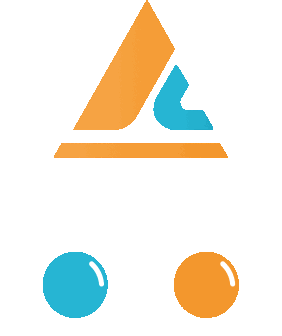
Close

BCoder Castle – Best Software App & Web Design Development Company 2023

The e-learning industry is one of the fastest-growing industries in the world. The global eLearning market is expected to reach $325 billion by 2025, with a CAGR of 5.5%.
This growth is driven by the increasing demand for online learning and the advances in technology that have made it easier than ever to develop and deliver e-Learning content. BYJU, Duolingo, and Udemy are three well-known and successful players in the global e-learning app development company.
However, despite the growth and potential of the e-Learning industry, not all e-Learning startups are successful. In fact, many e-Learning startups fail due to a variety of reasons.
If you are also investing in the e-learning industry but are confused upon realizing this reality then BCoder will discuss the reasons why e-learning platform app startups fail.
So, here we’ll explore the common reasons why eLearning application startups fail and provide insight into how to overcome these challenges.
One of the most common reasons for the failure of education startups is a lack of focus. Startups often try to cater to too many different markets or audiences, spreading themselves too thin and diluting their efforts. This lack of focus makes it difficult for them to truly excel in a particular area and attract customers. To overcome this challenge, startups should focus on a specific market or audience and tailor their solution to meet the needs of that market. This will help them differentiate themselves from the competition and attract customers more effectively.

Another common challenge facing education startups is insufficient funding. Many startups don’t secure enough funding to support their growth and development, leading to a lack of resources and a failure to execute their plans effectively. To avoid this, startups should secure sufficient funding and manage their resources effectively, focusing on revenue growth. This will help them achieve their goals and ensure the long-term viability of their business.
Education startups that don’t conduct thorough market research are unlikely to succeed. It’s important to understand your target audience and validate your ideas with potential customers before launching your education startup. This will help you identify the needs and preferences of your target audience, and ensure that your solution is aligned with their needs. This will help you attract customers more effectively and increase your chances of success.
Education startups also need to be aware of and prepared to compete with established players in the market. Underestimating the competition can lead to a lack of differentiation and a failure to stand out in a crowded market. To avoid this, startups should be aware of the competition and prepare themselves to compete effectively. This will help them differentiate themselves and stand out in a crowded market.
The education market is constantly evolving, and startups need to be able to adapt to new technologies, trends, and customer needs. Failure to adapt can result in startups becoming obsolete and losing their competitive edge. To avoid this, startups should stay open to change and continuously adapt to the evolving education market to ensure that their solution remains relevant and in demand.
Startups that fail to execute their plans effectively will struggle to succeed. It’s important to focus on execution and measure progress regularly, making adjustments as needed.
Startups need to have a clear and sustainable business model in place to ensure long-term success. Without a sustainable business model, startups will struggle to generate revenue and grow their business over time.
To succeed in the highly competitive e learning web development industry, it is essential to have a clear and unique value proposition. This means identifying the specific problem that your app will solve and ensuring that it offers a unique solution compared to other e-learning apps on the market. To determine your unique value proposition, conduct market research, speak with potential customers, and gather feedback.
The user experience is key to the success of any e-learning app. A user-friendly and intuitive app will encourage users to engage with the content and continue learning. Invest in user experience design, testing, and continuous improvement to ensure that your app provides a smooth and enjoyable learning experience for users.
(KPIs) is one way to overcome the potential failure of an e-learning app. By tracking and analyzing KPIs, you can gain valuable insights into the performance of your app and make data-driven decisions to improve it.

Technology is a critical enabler for e-learning apps. By using the latest technology, you can create an immersive and engaging learning experience that motivates users to continue learning. Stay up-to-date with the latest developments in technology, and choose the right platforms and tools to help you bring your vision to life.
Strong partnerships with educational experts and institutions can help you reach new audiences and provide valuable feedback on your e-learning app. Work to establish partnerships by providing valuable support and resources, and engaging in open and honest communication.
The e-learning industry is constantly evolving, and it is important for startups to be able to adapt to changing needs and trends. Continuously gather feedback from users and educational experts, and use this feedback to iterate and improve your e-learning app. This will help you stay ahead of the curve and remain competitive in a rapidly changing market.
While the focus should always be on providing quality content and a great user experience, it is important to have a clear plan for monetizing your e-learning app. This could involve offering premium features or content, or charging a subscription fee. Consider your target audience and the value that your app provides to determine the best monetization strategy for your e-learning app.
One of the biggest reasons why e-learning app startups fail is due to a lack of focus and scope. To overcome this challenge, it is recommended to start with an MVP version of your app. An MVP is a stripped-down version of your app that includes only the most essential features. This allows you to validate your idea, test your market, and gather user feedback, all while keeping your costs low. By starting with an MVP, you can reduce the risk of failure and increase your chances of success.
In conclusion, by focusing on these strategies, you can overcome the common causes of e-learning app development failure and expand your business. The key is to focus on your target audience, provide a unique value proposition, and continuously improve your app based on user feedback. With these strategies in place, you can build a successful e-learning app that meets the needs of your users and provides a sustainable source of revenue.
BCoder is a leading full-stack mobile application development company with expertise in education app development. We strive to provide best-in-class services by utilizing our skilled and experienced team of developers. Our comprehensive range of services includes strategy, design, development, and testing for your education app needs. Contact us today for more information on how BCoder can help you with your education app developers project!
BCoder Castle can provide you with an incredible advantage in the education app marketplace. Our professionals have a long track record of success in creating user-friendly, powerful, and feature-rich apps that take advantage of advanced learning techniques, such as interactive learning, blended learning, and gamification.
For all of your e learning platform development projects, BCoder provides the expertise you need for a successful launch. Let’s get in touch today so our certified experts can guide you through the process!

